Robert Malley: Biden is willing to take military action against Iran if JCPOA talks fail
US Special Envoy for Iran Robert Malley has said President Joe Biden is willing to take military action against Iran if Tehran rejects Washington’s terms on the nuclear deal.
The Iran nuclear deal, also known as the Joint Comprehensive Plan of Action (JCPOA), was an agreement signed in 2015 by Tehran with the United States, the United Kingdom, France, Germany, Russia and China, during the presidency of Barack Obama. However, Obama’s successor Donald Trump abandoned the JCPOA in May 2018 and slapped cruel sanctions on Iran. Biden had vowed to resume talks to revive the Iran nuclear deal and remove the harsh US sanctions. Two years into the presidency, Biden has failed to keep his promise and is now threatening to take military action.
In an interview with Foreign Policy’s podcast Playlist broadcasted on Wednesday, Malley said Biden is prepared for a military option if nuclear talks between Washington and Tehran and others fail to reach an agreement.
Malley said that Washington was exerting unprecedented pressure on Iran to accept the terms of the nuclear deal.
“First, I think the president has made this clear, our priority is diplomacy. It’s the proven way, the best way. It’s the most sustainable way to prevent Iran from acquiring a nuclear weapon. And, that still remains our preference,” he said, despite the fact that the Islamic Republic has repeatedly rejected US allegations that it is seeking to build a nuclear bomb.
“Now, there are other tools that we are already using: pressure, international pressure, of a kind that Iran has not experienced for many many years," he added.
"Remember under the Trump administration much of the world, including our three European allies in the negotiations, spent at least as much time blaming the US, as they were blaming Iran for its nuclear advances. “
The US top Iran official claimed that in August the two sides had almost reached an agreement on the JCPOA deal, but Tehran wanted the International Atomic Energy Agency (IAEA) to stop its inspections, and so, they disagreed. Tehran, however, disputed this, saying it had complied with the deal even beyond its obligations, since the 2015 signing of the JCPOA, and the IAEA had witnessed Tehran's commitment to the terms of the deal at least 15 times. Iran turned off several of IAEA’s cameras which were functioning outside the Safeguards Agreement since early June after the IAEA Board of Governors passed a resolution that accused the country of not cooperating with the UN body.
Read More:
IAEA politicized approach to Iran Nuclear deal
Malley claimed the Iranian government as a whole was divided, and not yet concluded on whether they really wanted to come back to JCPOA, or not; and, so each time Tehran was presented with a deal, even deals that were considered fair by other parties such as Germany France and the UK, plus Russia and China, Iran was the one that walked back. He said the deal would be dead when the benefits do not justify or warrant the sanctions relief that the US is ready to offer.
“So we’ve now [pause], we’re in a very different situation today, where we’re working the next step with the UK, with France, with Germany, with so many countries around the world. Look at the vote at the IAEA Board of Governors. There is a vast majority of countries today, and not just Western countries, that understand that the pressure has to be put on Iran to stop its nuclear advances, Malley said.
“Now that said, so we'll have the sanctions, we'll have the pressure and we'll have the diplomacy. If none of that works, the president has said, and, as a last resort, he will agree to a military option because if that’s what it takes to stop Iran from acquiring a nuclear weapon, that’s what will happen. But we’re not there. We are still hopeful that we will find other means and that Iran will change its current path because it will be best for everyone," he continued.
Iranian Foreign Minister Hossein Amir-Abdollahian said last month that Iran was still prepared for a conclusion of a good agreement on a nuclear deal with world countries.
"The Islamic Republic is ready for the conclusion of a good, strong, and durable agreement," the top Iranian diplomat told the European Union's foreign policy chief Josep Borrell during a phone call on November 3.
Amir-Abdollahian said, "We have relayed our opinion to the American side through the European Union, with a constructive and forward-looking approach." In reference to Iran's collaboration with the IAEA, Amir-Abdollahian said Tehran was working with the UN agency towards the realization of "an agreement over good and strong cooperation" between the two sides.
USS Abraham Lincoln flees after precision strike by IRGC drones in Sea of Oman
Yemen signals readiness for unified front with Iran against US-Israeli war coalition
Iran’s Army and IRGC destroy seven more Hermes, MQ-9 drones in retaliatory ops
'Iran no place for Hell dwellers': Iran’s security chief warns against ground offensive
Unpacking glaring contradictions in US-Zionist justifications for war against Iran
Lavrov: Russia 'will do everything’ to make US-Israeli aggression against Iran ‘impossible’
Iranian nation resolved to make criminals pay for blood of martyrs: Shiraz Jews
Iran slams US-Israeli attack on Tehran's 12,000-seat Azadi sports complex as war crime


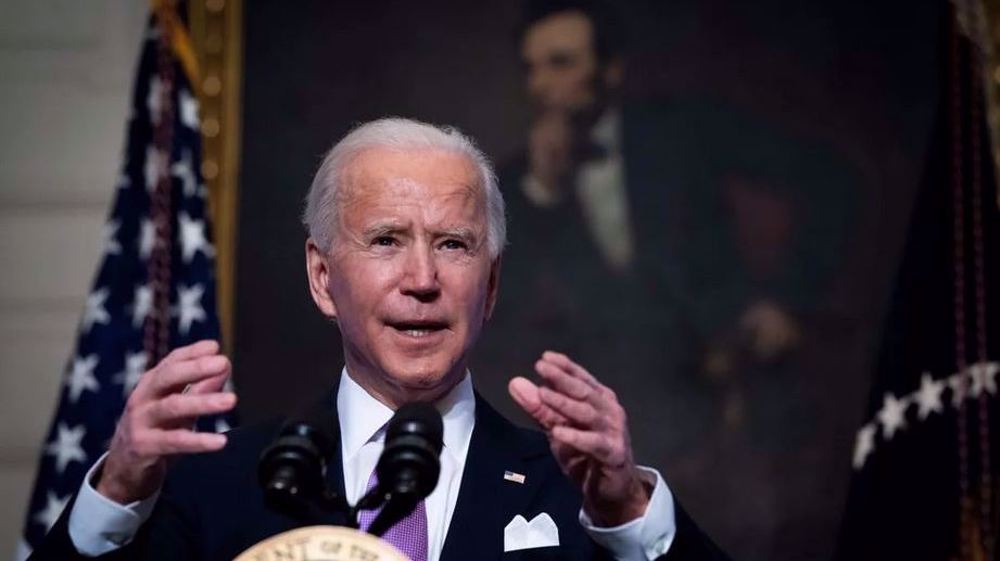

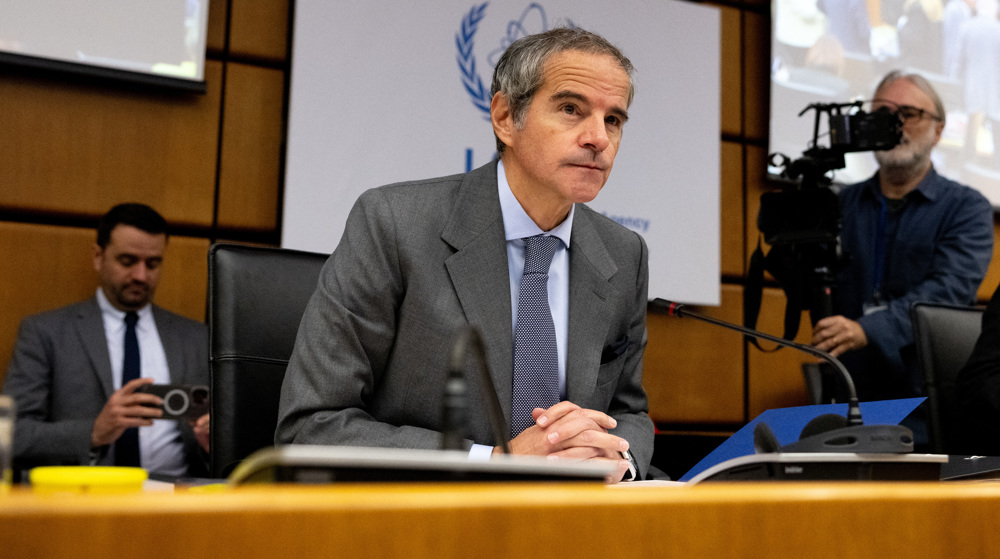
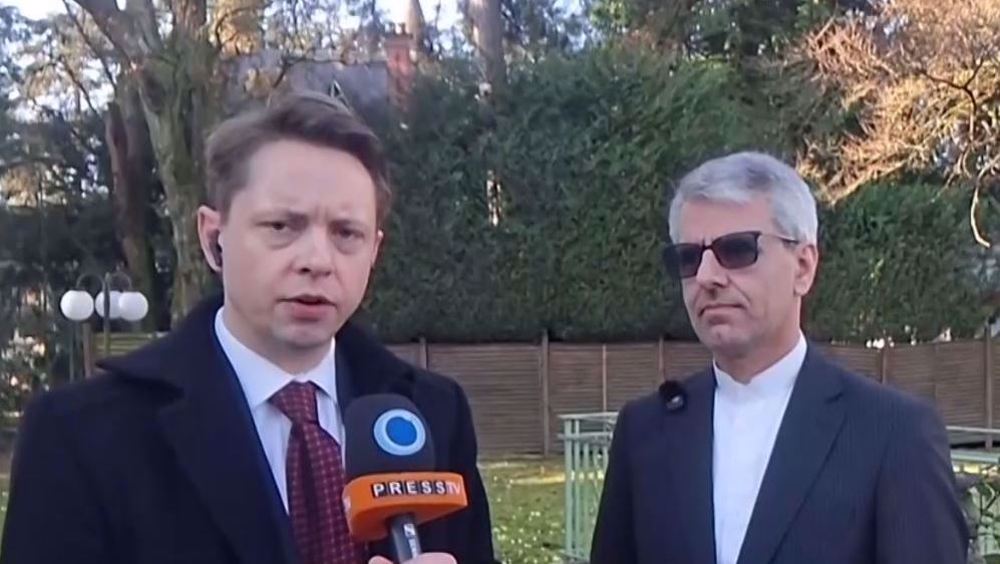
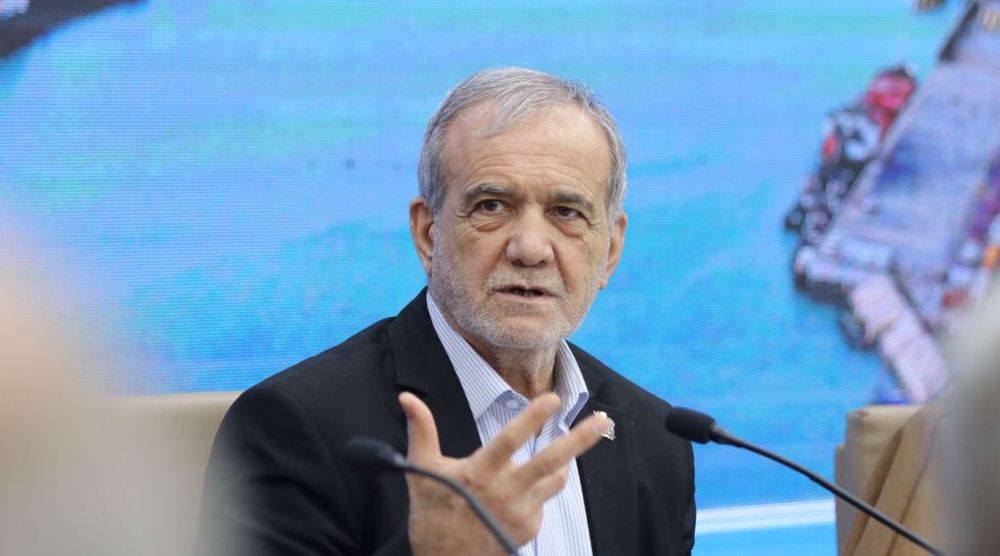



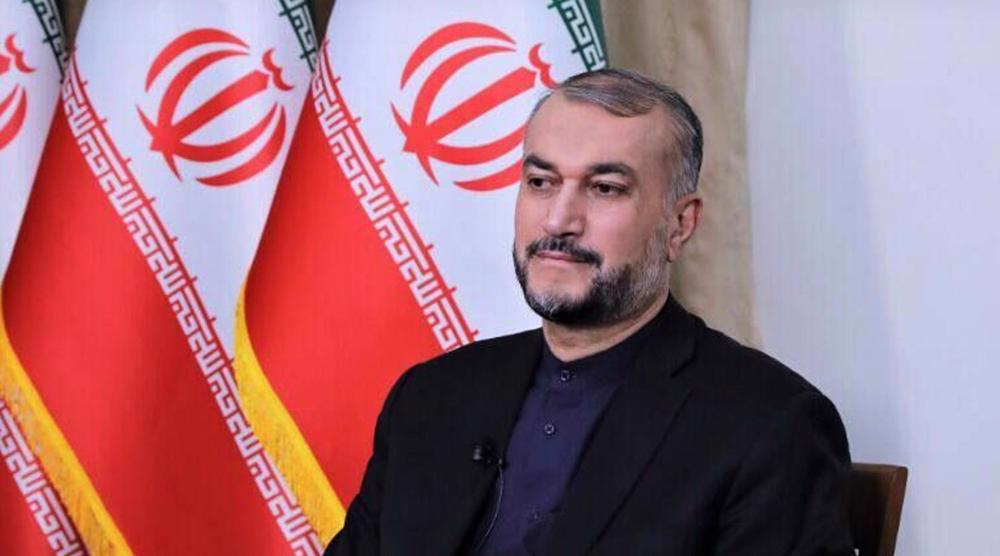
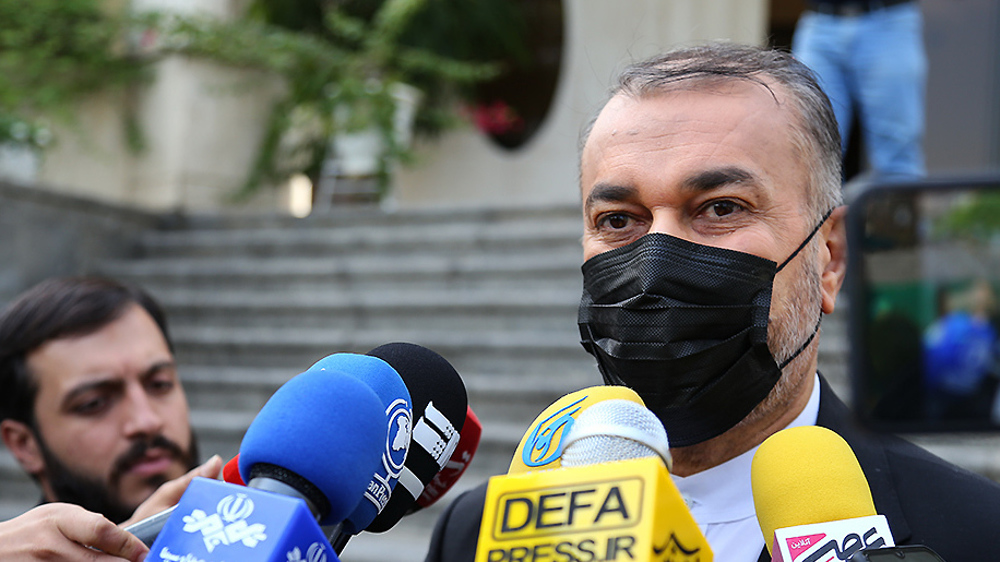
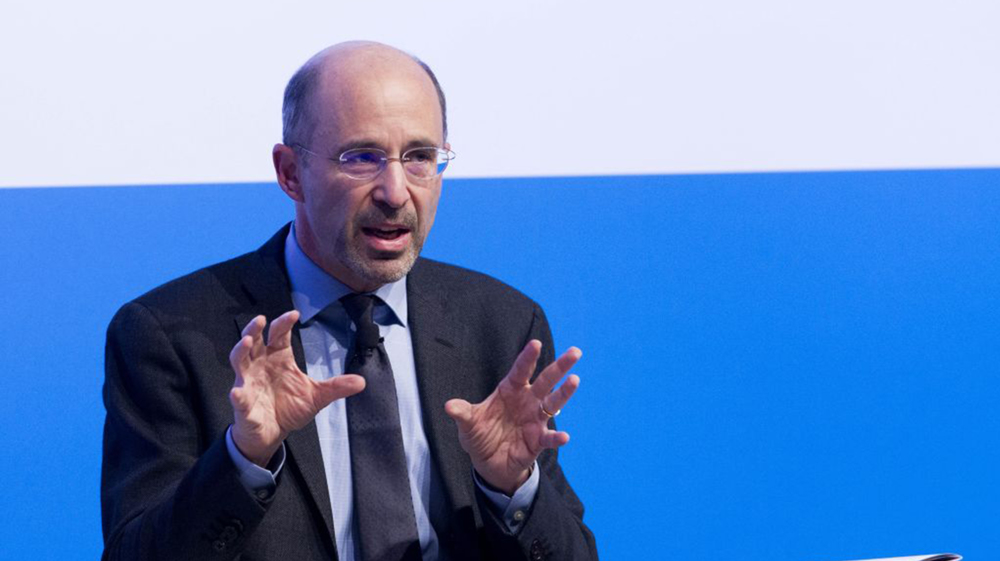
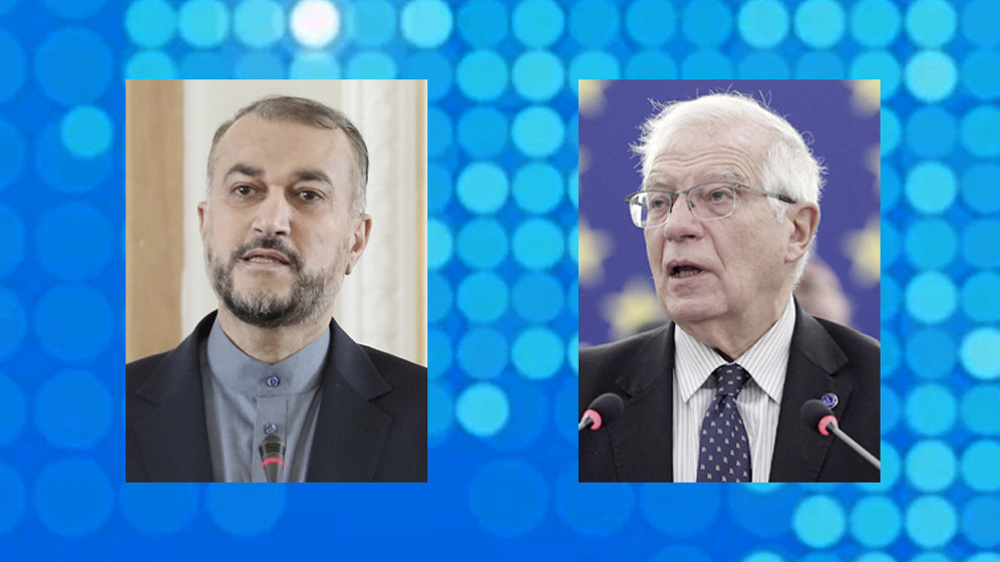
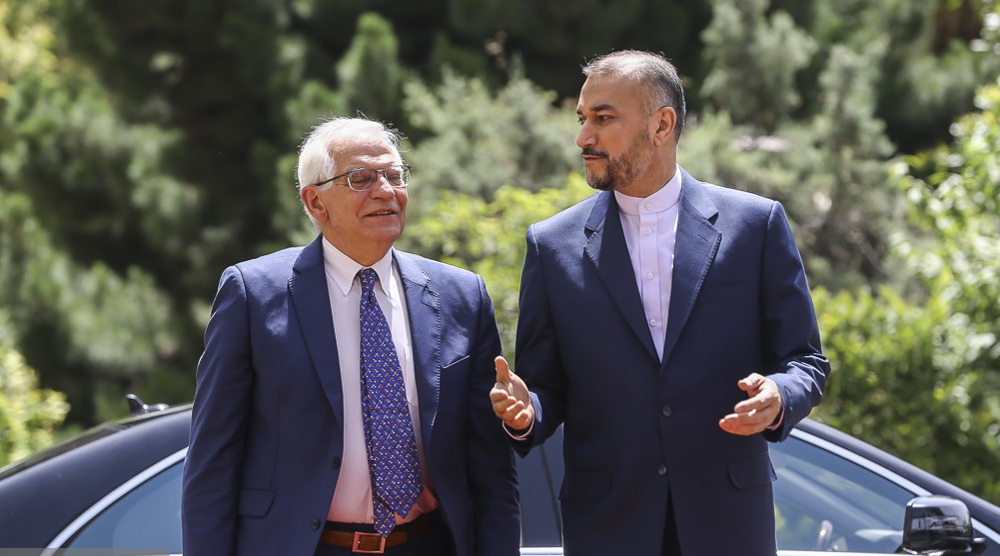
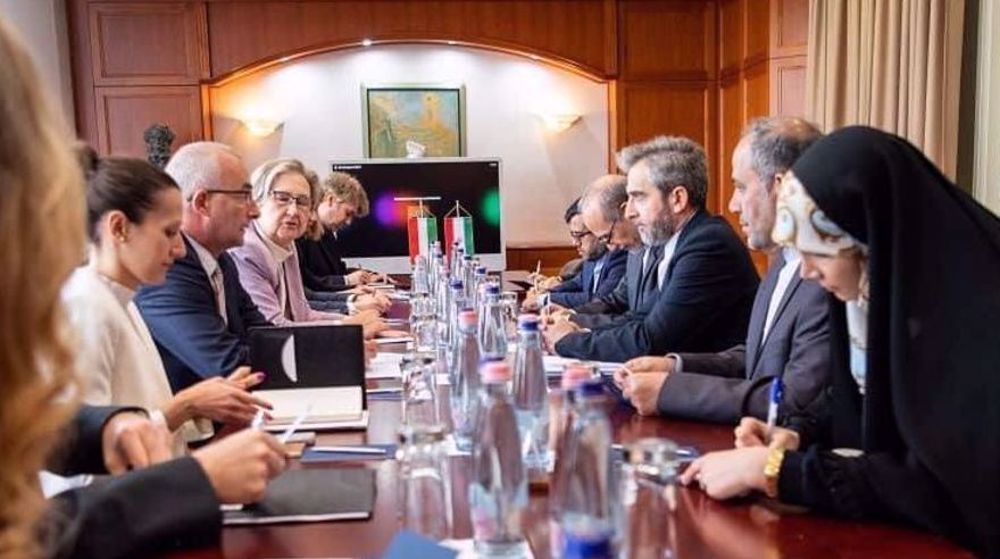
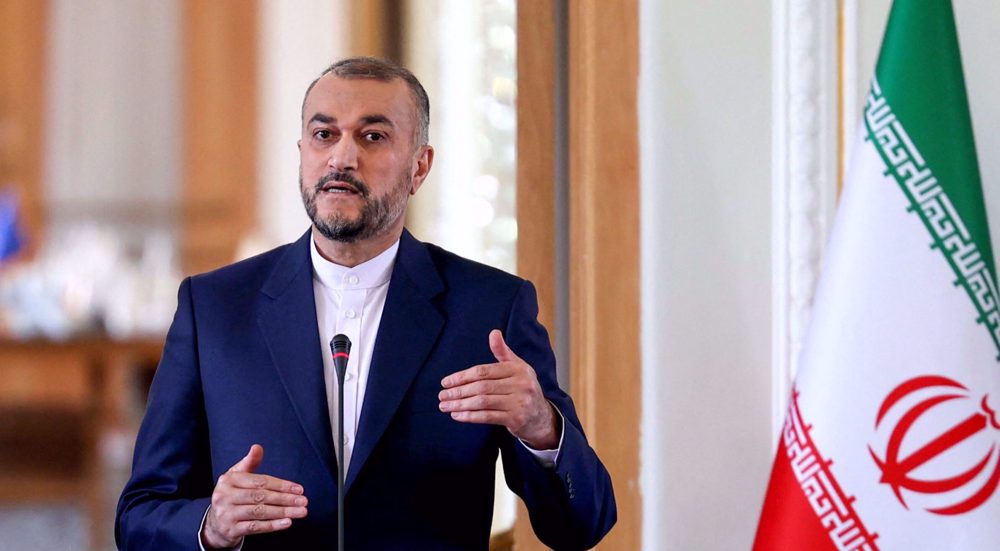

 This makes it easy to access the Press TV website
This makes it easy to access the Press TV website